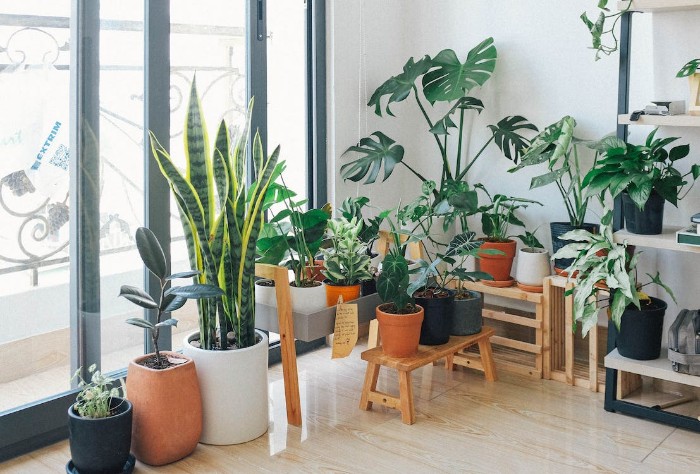
7. Natural humidity control
Indoor plants can also help to control indoor humidity levels. Plants absorb water from the air, helping to regulate indoor humidity and preventing excessive indoor moisture which can damage indoor surfaces such as furniture or electronics. Moreover, indoor plants can help reduce indoor temperatures in hot weather. This is because indoor plants absorb solar energy and release it as cooling vapors, helping to reduce indoor temperatures.
8. Add aesthetic beauty
In addition to the health benefits, indoor plants can also add aesthetic beauty to indoor environments. With a wide variety of houseplants available in different shapes and sizes, indoor plants provide a great way to add color and texture to indoor spaces.
9. Absorb harmful toxins
Indoor plants can help absorb harmful toxins from indoor air. Studies have shown that indoor plants can help reduce indoor pollutants by absorbing them through their leaves and roots and converting them into harmless gases. This is beneficial for indoor environments as it helps to reduce indoor air pollution, improving the overall quality of indoor air.